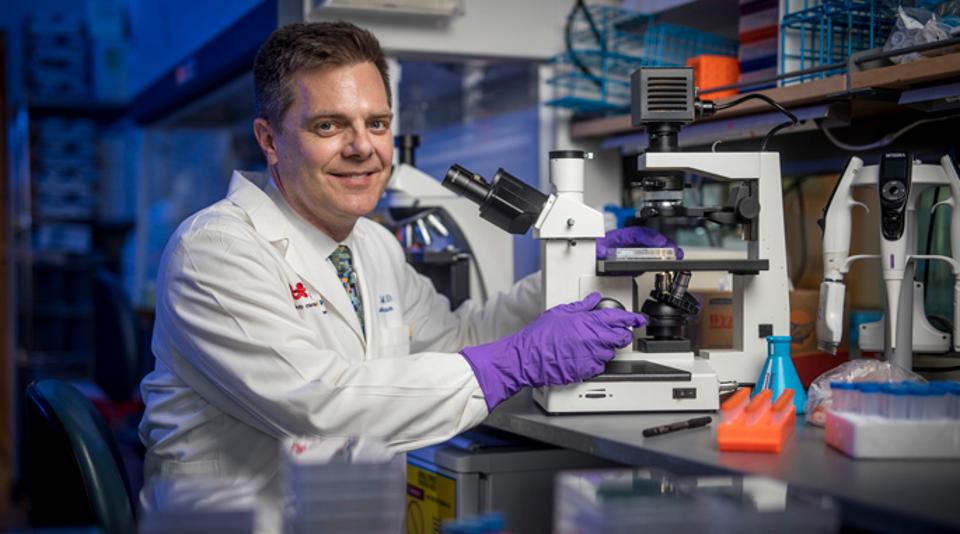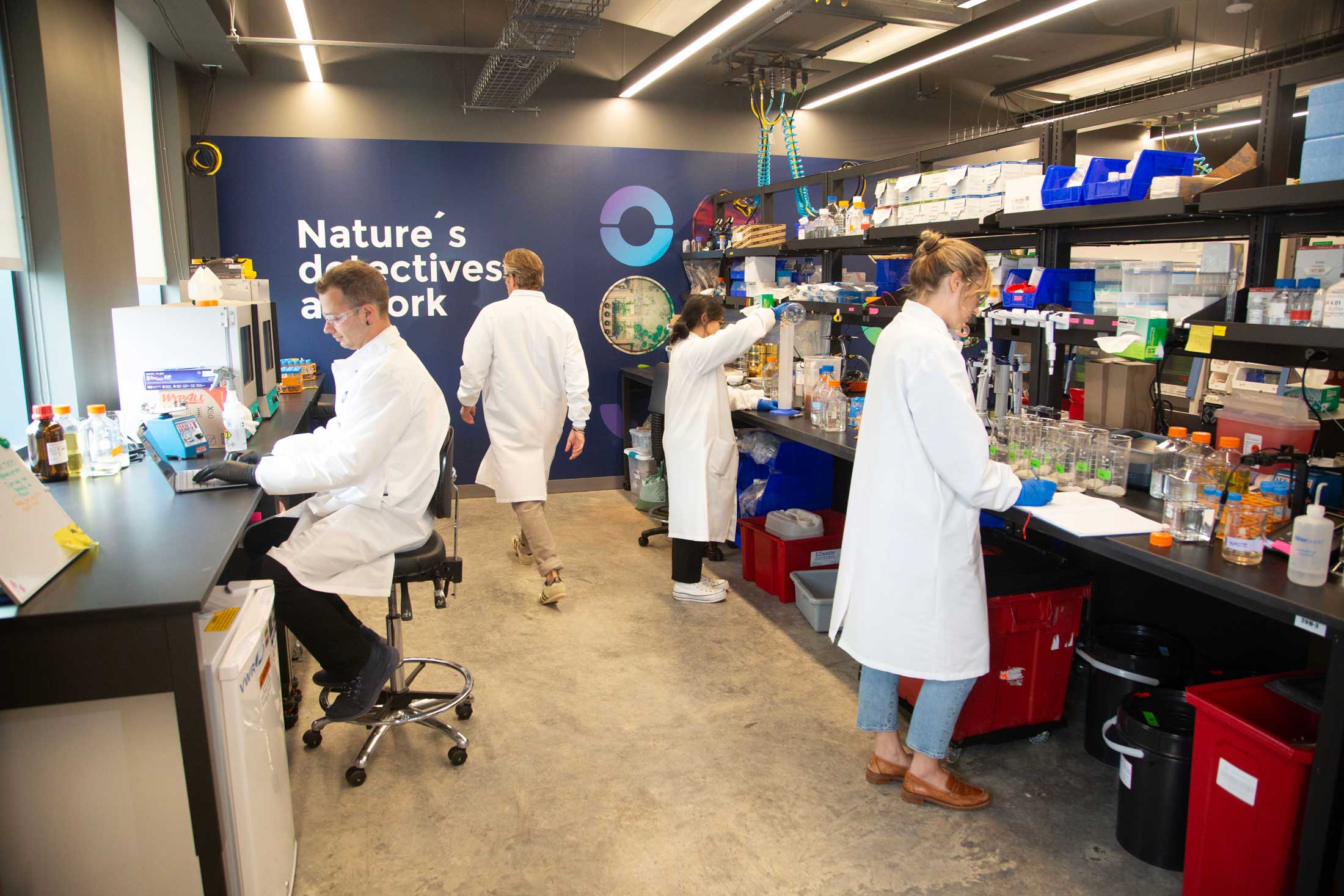Bay Area COVID-Fighting Startup Files For $100m IPO
Jun 29, 2020
Eric Hobbs, CEO of Berkeley Lights
COVID-19 is a double whammy—killing over half a million people around the world and simultaneously derailing the global economy. Synthetic biology company Berkeley Lights is working out the antidote on both fronts, fast-tracking antibody discovery while powering the explosion of a new gold rush that can help put the wheels back on.I reported recently that McKinsey predicts the bioeconomy will be worth a whopping $4 trillion by 2040. In fact, biotechnology alone already accounts for at least 2% of GDP in the US and is growing fast - forecast to expand by around 10% every year through 2024.Bringing the picks and shovels to this gold rush is synthetic biology, a major biotechnology subsector which is making biology easier to engineer. Synthetic biology opens a swathe of green, sustainable, and rapid-response solutions to our global problems, from food insecurity to pandemics.Berkeley Lights is one company ensuring that this golden future pans out, with a $100 million IPO filed last week. For the past few months, the Bay Area startup has targeted COVID-19 with a remarkable piece of technology that allows scientists and bioengineers to precisely analyze single cells and find antibodies to neutralize the virus that has tanked the global economy.Finding antibodies to fight COVID-19One beneficiary of this technology is Vanderbilt University, which is part of a Department of Defense program to develop platforms for rapid isolation of human antibodies in response to pandemics or emerging infections.“When the infection started happening in the United States, we moved immediately because we sensed that this might become a worldwide problem,” says Dr. James Crowe, Director of the Vanderbilt Vaccine Center. Crowe has been screening the blood of COVID-19 survivors to hunt for antibodies produced by immune cells, which might help to develop a vaccine against COVID-19. But it hasn’t been easy.

James Crowe, Director of the Vanderbilt Vaccine Center VANDERBILT UNIVERSITY“It turns out these people have really rare clones that are specific for coronavirus,” Crowe explains. “Maybe one cell in a thousand. But how do you pull out these needles from the haystack?”This is why, says Crowe, Vanderbilt established a collaboration early on with Berkeley Lights. “They have this device that can trap over 10,000 individual cells and measure the antibodies coming from them. It’s a fabulous platform.”A global COVID-fighting machineBerkeley Lights’ Beacon workflow offers the precision of a finely-tuned engineered system more common to Silicon Valley microprocessor fabs rather than biology labs.“We have this technology which can move cells into isolated chambers known as nanopens, which is a very happy place for a cell to be,” explains Eric Hobbs, CEO of Berkeley Lights. “Because we control the environment, we can get cells to produce antibodies in the right amount that we can actually measure.”Before this sort of digital cell biology became available, researchers would have to perform a hybridoma study, which involved injecting live animals with the virus and waiting for them to produce antibodies, which could take up to several months.“In the case of antibody discovery,” Hobbs tells me, “we’re going from a manual process that would have taken maybe 100 days, to a fully automated one that takes 10 hours.”Beacon is a light in the dark shadow of COVID-19, and is being used worldwide in the hunt for antibodies that can lead to effective vaccines and treatments. GenScript, a US company with a large footprint in China, adopted the workflow in late 2019 and already offers over 50 SARS-CoV-2 antibodies to aid research into vaccine development. It’s also being used at the University of Queensland in Australia.“My dream is that we get through this,” says Hobbs. “I’m extremely proud of how quickly the team has been able to adjust to this new normal we have. It’s a wonderful thing, the human spirit, that we’re able to adapt to these situations and make progress on very important projects as we move through these tough times.”Beyond COVIDAfter COVID-19 slowed the economy to a crawl, the stock market came back with a boom this June. Berkeley Lights’ $100 million IPO is one among a flurry from startups looking to cash in, but it stands out because the company has the potential to transform the entire synthetic biology sector. Its platform could bring biology up to speed by turning it into a true engineering discipline and making it reliable, robust, and reproducible. Hobbs’ vision is for biology to proliferate through every sector of the economy in the same way as computing, exponentially powering our ability to solve a whole host of problems.“With these capabilities, we now have distributed biology,” says Hobbs. “It’s like distributed computing previously - think of the impact that had on the world. Across different continents we can use the same workflow, processes, and reagents. It leads to this world of continuous improvement.” For example, Hobbs recently launched the Global Emerging Pathogen Antibody Discovery Consortium (GEPAD) to tackle the novel coronavirus and other pandemic viruses.This vision is cause for much optimism within the synthetic biology sector. After the Bay Area startup Twist Bioscience doubled in value following its IPO, the prospects look bright for companies in the business of DNA. The coronavirus pandemic has shown the world that synthetic biology can not only step up to answer tough global challenges but can ramp up our capacity to deal with them at an unprecedented pace.Pipelines have been devoted to COVID, machines have been connected the world over, and protein discovery has been supercharged. That success will drive more investment into synthetic biology, which promises huge rewards in terms of speed, sustainability, and scale. Imagine the dividends that could be paid if this same approach were applied to food, medicine, climate change, and more.“I think this is a turning point,” Hobbs concludes. “We’re really connecting the engineering of biology with information technology in new and unique ways that are going to transform the way we develop solutions in the future.”Follow me on Twitter at @johncumbers and @synbiobeta. Subscribe to my weekly newsletters in synthetic biology. Thank you to Peter Bickerton for additional research and reporting in this article. I’m the founder of SynBioBeta, and some of the companies that I write about—including Berkeley Labs, Twist Bioscience, and GenScript—are sponsors of the SynBioBeta conference and weekly digest. Here’s the full list of SynBioBeta sponsors. Originally published on Forbes: https://www.forbes.com/sites/johncumbers/2020/06/29/bay-area-covid-fighting-startup-files-for-100m-ipo/


















